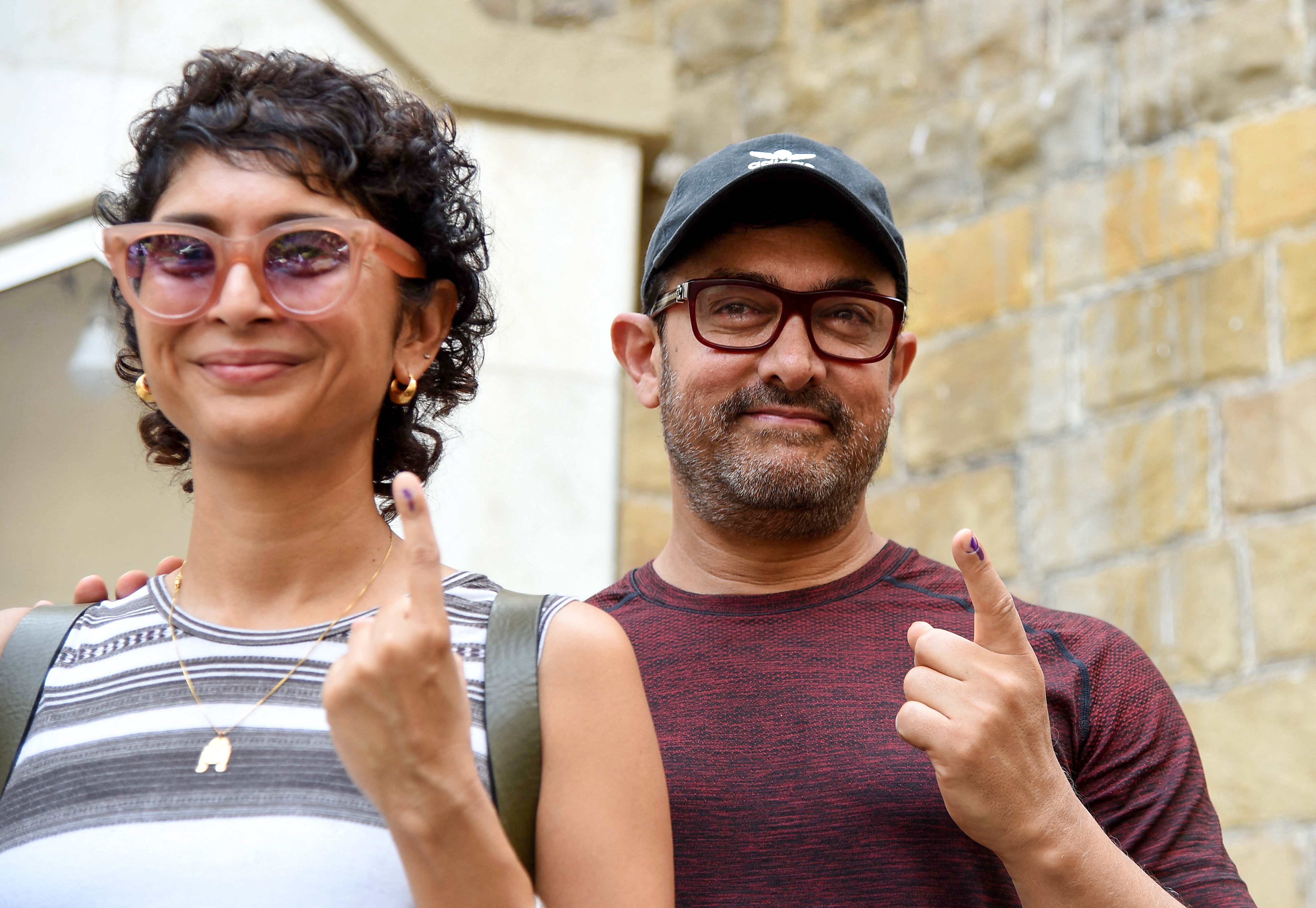Bollywood stars Ranveer Singh and Aamir Khan file police complaint after being targeted by deepfakes
Deepfake videos of actors endorsing political party go viral on social media
Bollywood actors Ranveer Singh and Aamir Khan have filed police complaints after deepfake videos of the actors endorsing a political party went viral on social media.
A 27-second video clip that went viral on social media showed Khan urging voters to be careful of “jumle vaade”, a Hindi word that translates to “empty promises”, ahead of India’s general elections beginning 19 April. In another video, the actor is shown to be praising sections from one party’s manifesto for the ongoing elections in India.
The videos were analysed by Indian fact checking website AltNews who found they were edited using artificial intelligence technology with clips from Satyamev Jayate, a show Aamir Khan hosted between 2012 to 2014.
A 41-second video of Singh had similar content – the actor is shown criticising the currrent Indian government’s policies. While the video is from an interview he gave to Indian news agency ANI, its audio was tampered with using AI.
A spokesperson for Singh told ANI that a First Information Report (FIR) – the first step in any police procedure in India – had been registered and the police were on the case.
“Yes, we have filed the police complaint and FIR has been lodged against the handle that was promoting the AI-generated deepfake video of Mr Ranveer Singh,” said his team.
Khan addressed the deepfakes on his social media, posting “Deepfake se bacho doston” (Friends, beware of deepfakes).
A review by Reuters shows that these deepfake videos have been viewed over half a million times on social media over the past week.
A spokesperson for Khan also said last week that the actor reported the clips to the relevant authorities and also filed a complaint with Mumbai Police’s cyber crime cell once he discovered the deepfake videos.
“We want to clarify that Mr Aamir Khan has never endorsed any political party throughout his 35-year career,” the spokesperson said, reported the Press Trust of India.
“He has dedicated his efforts to raising awareness through Election Commission public awareness campaigns for many past elections”.
“We are alarmed by the recent viral video alleging that Aamir Khan is promoting a particular political party. He would like to clarify that this is a fake video and totally untrue. He has reported the matter to various authorities related to this issue, including filing an FIR with the Cyber Crime Cell of the Mumbai Police,” the statement added.

Last week, following Khan’s complaint, police in the western city of Mumbai, where Khan resides, registered a case under relevant sections of the Indian Penal Code (IPC), including impersonation, cheating, and provisions of the Information Technology Act.
This is not the first deepfake video to have hit an Indian celebrity. Multiple Bollywood actors like Katrina Kaif, Alia Bhatt, Rashmika Mandanna, as well as cricket legend Sachin Tendulkar have fallen victim to deepfakes.
Indian IT minister Ashwini Vaishnaw announced in November 2023 that notices had been sent to all social media companies, instructing them to take necessary steps to identify and remove disinformation, particularly deepfakes, from their platforms.
Deepfakes use AI technology to digitally alter one person’s likeness. Deepfakes can be audio, video, and image-based.
“Deepfake is a big issue for all of us. We recently issued notices to all the big social media firms, asking them to take steps to identify deepfakes, for removing those content. The social media platforms have responded. They are taking action. We have told them to be more aggressive in this work,” Vaishnaw said.
Indian prime minister Narendra Modi also addressed the growing threat of deepfakes. In December 2023, he said, “These videos look very real and, therefore, we need to be very careful before believing the authenticity of a video or an image. India is emphasising a global framework for AI”.
The lack of clear regulation or laws around deepfakes has made it harder for Indian police to control its spread. “The police are prosecuting on the effect of the deepfake and not because it is a deepfake itself,” Anushka Jain, a policy researcher at Goa-based Digital Futures Lab told Al Jazeera.
Social media giants Meta and Google have pledged to address manipulated content by removing or labelling posts that could be misleading. Meta, which owns Facebook, Instagram and WhatsApp, said “manipulation is not apparent and could mislead, particularly in the case of video content”.
Google, which owns YouTube, said the platform requires “creators to disclose altered or synthetic content that is realistic, including using AI tools, and we’ll inform viewers about such content through labels”.
Registered Indians will begin casting their votes in seven phases from 19 April to 1 June. The 44-day-long electoral process will end with the results declared on 4 June.
Join our commenting forum
Join thought-provoking conversations, follow other Independent readers and see their replies
Comments
Bookmark popover
Removed from bookmarks